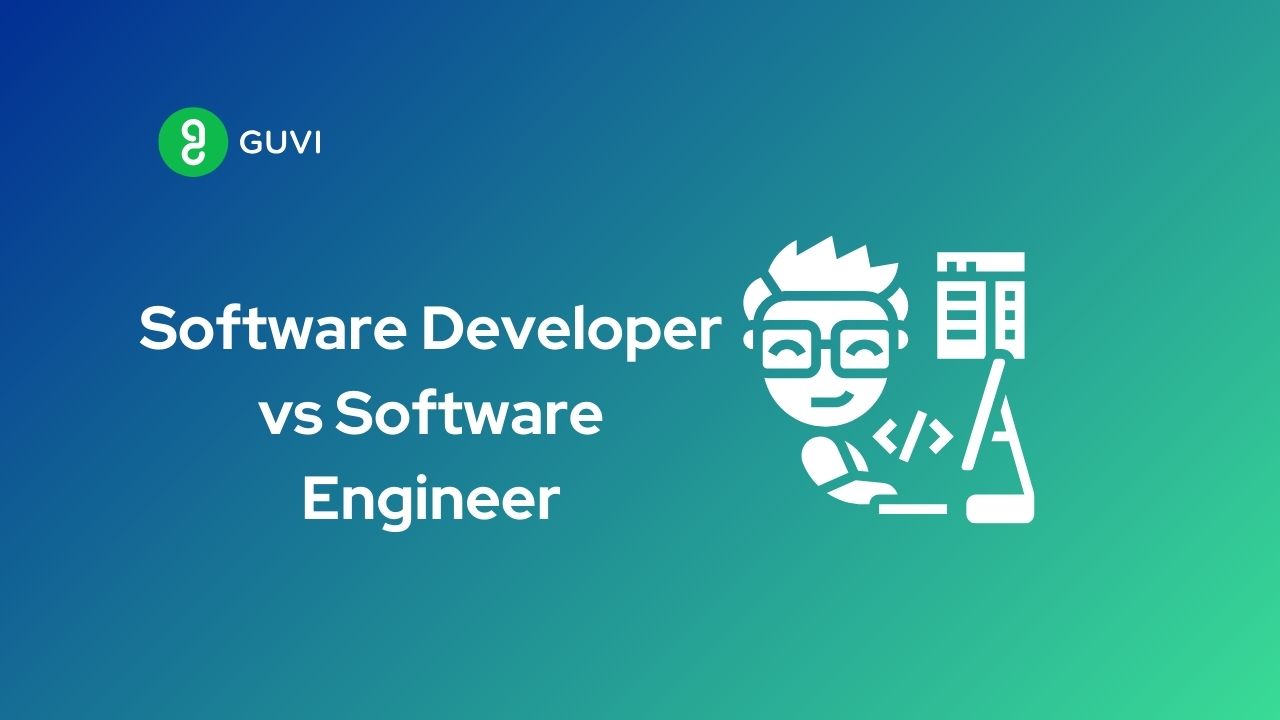
Software Developer vs Software Engineer: Who is More Important in 2024?
Oct 04, 2024 6 Min Read 1846 Views
(Last Updated)
In the tech world, two roles play an important role in deciding our digital life, software developer and software engineer. But, what’s the difference between these two? They sound so similar and almost every one of us thinks both of them to be the same when we hear these terms for the first time.
But, there is a huge difference between those two and that is what we are going to see in this article. While one depends purely on the coding part, the other depends on the long run, keeping in mind, the maintenance of the code and all.
In this article, you are going to learn in-depth about the definition of a software developer and software engineer, analyzing the major differences between those two and which one is better. So, read till the end to understand them much better.
Table of contents
- Who is a Software Developer?
- Key Responsibilities:
- Skills and Qualifications:
- Who is a Software Engineer?
- System Architect:
- Algorithm Developer:
- Skilled Coders:
- Security Expert:
- Performance Optimizer:
- Quality Assurance Champion:
- Ongoing Maintenance:
- Innovation Driver:
- Difference between a Software Developer and a Software Engineer
- What Should You Become: A Software Developer or A Software Engineer?
- Conclusion
- FAQ
- What is the main difference between a software developer and a software engineer?
- Can a software developer become a software engineer, or vice versa?
- What is the career growth potential for a software developer vs. a software engineer?
- How do the salaries compare between software developers and software engineers?
- Are there specific tools or programming languages associated with each role?
Who is a Software Developer?
A software developer is a skilled professional responsible for designing, creating, and maintaining specific software applications, programs, and systems.
These individuals are integral to the world of technology, as their work forms the backbone of countless devices and services that we use in our daily lives. From mobile apps to operating systems and web applications to video games, software developers play a critical role in shaping our digital landscape.
Before diving into the next section, ensure you’re solid on full-stack development essentials like front-end frameworks, back-end technologies, and database management. If you are looking for a detailed Full Stack Development career program, you can join GUVI’s Full Stack Development Course with placement assistance. You will be able to master the MERN stack (MongoDB, Express.js, React, Node.js) and build real-life projects.
Additionally, if you would like to explore JavaScript through a self-paced course, try GUVI’s JavaScript certification course.
Key Responsibilities:
Software developers are involved in various aspects of software development, from initial concept to deployment and ongoing maintenance. Here are some of their key responsibilities:
1. Analysis and Planning: Developers begin by analyzing the needs of end-users or clients. They work closely with stakeholders to understand project requirements and objectives. This phase involves creating detailed project plans and timelines.
2. Design: The design phase involves creating the software’s architecture and specifying its components. Software developers determine how the different parts of the software will interact, ensuring that it meets the required functionality and scalability.
3. Coding: This is where developers roll up their sleeves and write the actual code for the software. They use various programming languages and development tools to bring the design to life. The code must be efficient, clean, and well-documented.
4. Testing and Debugging: After coding, developers rigorously test the software to identify and fix any issues or bugs. This phase is critical to ensure that the software operates smoothly and as intended.
5. Integration: Developers often need to integrate their software with other systems or services, ensuring that data flows seamlessly between different components. This is particularly important for complex applications.
6. Deployment: Once the software is thoroughly tested and ready for release, developers oversee its deployment, making it available for users. This might involve deploying it on servers, app stores, or other platforms.
7. Maintenance and Updates: Software developers are also responsible for ongoing maintenance. This includes addressing user feedback, fixing bugs that arise in the field, and releasing updates to add new features or improve performance.
Skills and Qualifications:
To excel as a software developer, one needs a combination of technical skills and problem-solving abilities. Here are some key qualifications and skills typically associated with this role:
1. Programming Languages: Proficiency in one or more programming languages, such as C programming, Java, Python, C++, or JavaScript, is essential.
2. Software Development Tools: Familiarity with software development environments, version control systems, and integrated development tools is important.
3. Problem-Solving: Software developers must be adept at identifying and solving complex technical problems efficiently.
4. Collaboration: Collaboration with team members, including designers, project managers, and quality assurance testers, is vital to producing successful software.
5. Communication: Clear communication skills are necessary to understand and convey project requirements, document code, and work effectively within a team.
6. Continuous Learning: The field of software development is constantly evolving. Developers need to stay up-to-date with the latest technologies and best practices.
Software developers can work in various industries, from tech giants and startups to finance, healthcare, and entertainment. Their work has a profound impact on modern society, as software applications have become integral to how we work, communicate, shop, and entertain ourselves.
The role of a software developer is dynamic and ever-evolving, reflecting the fast-paced nature of the tech industry. These professionals are not just coders; they are the ones who are shaping our present and future.
Who is a Software Engineer?
A software engineer is a highly skilled and specialized professional who is primarily responsible for designing, developing, and maintaining complex software systems and solutions.
These individuals are like the architects and builders of the digital world, working on intricate and large-scale projects, often in a collaborative environment with cross-functional teams.
Here’s a distinct explanation of what a software engineer does:
1. System Architect:
Think of a software engineer as the chief architect of a digital skyscraper. They are responsible for designing the entire structure, including the foundation, framework, and interior layout. They decide how different components interact, create software systems blueprints, and plan for long-term scalability and efficiency.
2. Algorithm Developer:
Software engineers are masters of algorithms and data structures. They develop intricate algorithms to solve complex problems efficiently. This is like creating a treasure map for the computer to follow, ensuring that the software performs tasks accurately and speedily.
3. Skilled Coders:
Just as a painter uses a palette of colors to create a masterpiece, a software engineer wields programming languages and tools to craft sophisticated software. They write code that is not only functional but also elegant, efficient, and maintainable. This requires a deep understanding of software architecture and design patterns.
4. Security Expert:
Software engineers are the security guards of your data and privacy. They build security features into software to protect against cyber threats and data breaches. They ensure that sensitive information remains confidential and that users can trust the software with their data.
5. Performance Optimizer:
Software engineers are obsessed with performance. They fine-tune software to run faster, handle more users, and consume fewer resources. They are like race car engineers, striving for peak performance with every tweak and adjustment.
6. Quality Assurance Champion:
Software engineers are committed to delivering high-quality products. They oversee rigorous testing processes, uncover and resolve bugs, and ensure that the software is reliable, stable, and user-friendly.
7. Ongoing Maintenance:
Beyond the initial development, software engineers are responsible for the ongoing maintenance and improvement of software. They listen to user feedback, adapt to changing requirements, and release updates that enhance functionality and address evolving needs.
8. Innovation Driver:
Software engineers are at the forefront of innovation, constantly pushing the boundaries of what’s possible. They create groundbreaking technologies, explore new approaches, and develop software solutions that drive progress in diverse industries.
In summary, a software engineer is a dynamic, highly skilled, and forward-thinking professional who envisions, designs and constructs sophisticated software systems. Their work plays a pivotal role in shaping the technology-driven future that we continue to embrace, from AI-powered applications to cloud-based systems, driving innovation and efficiency across various industries.
Difference between a Software Developer and a Software Engineer
| Aspect | Software Developer | Software Engineer |
| Role & Responsibilities | Primarily focused on coding, testing, and implementing specific features or components of software. | Involved in software design, system architecture, and making high-level decisions about software structure and scalability. |
| Problem-Solving | Focus on immediate technical challenges and coding tasks. May not be deeply involved in architectural decisions. | Deal with complex, abstract challenges and high-level problem-solving, including architectural and system design. |
| Coding vs. Engineering | Emphasis on coding and software implementation. | Focus on the broader engineering aspects of software development, including architecture and design. |
| Certifications & Licensing | Pursue online courses to gain professional certification for programming languages like C++ expertise as it can help your resume. | Typically work on smaller coding tasks, and feature implementation, and may collaborate with software engineers. |
| Scope of Work | Typically work on smaller coding tasks, feature implementation, and may collaborate with software engineers. | Typically work on smaller coding tasks, and feature implementation, and may collaborate with software engineers. |
| Collaborative Role | Often work closely with software engineers, designers, and other team members to implement specific features. | Collaborate with developers, designers, project managers, and other stakeholders, contributing to the overall project architecture and design. |
| Problem Prevention | Understand all the coding-oriented problems and solve it. Focus less on architectural and system design considerations. | Proactively address software system issues, scalability, and long-term maintenance in the design phase. |
| Long-Term Considerations | Less involved in long-term planning and architectural decisions. | Responsible for making decisions that impact long-term system stability, scalability, and performance. |
| Typical Job Roles | Software Developer, Web Developer, Mobile App Developer, Front-end Developer, Back-end Developer. | Software Engineer, Systems Engineer, Software Architect, DevOps Engineer. |
What Should You Become: A Software Developer or A Software Engineer?

The choice between becoming a software developer or a software engineer depends on your personal interests, career goals, and strengths. Here are some considerations to help you decide:
Choose to Become a Software Developer if:
- You have a strong passion for coding and enjoy working on the nitty-gritty details of software implementation.
- Your primary interest is in creating specific features and functionalities, and you find satisfaction in seeing immediate results.
- You prefer a faster-paced work environment and are more focused on delivering individual components or features within software projects.
- You are open to working on a variety of projects and don’t necessarily want to be tied to complex architectural and system design considerations.
Choose to Become a Software Engineer If:
- You are drawn to the bigger picture, including designing complex software systems, and architectures, and making high-level decisions.
- You enjoy the challenge of solving abstract and high-level technical problems and consider long-term system scalability and maintainability.
- You are interested in optimizing system performance, considering the holistic project lifecycle, and collaborating with cross-functional teams.
- You prefer a role that often involves more strategic planning, problem prevention, and shaping the overall project’s direction.
Ultimately, the choice between becoming a software developer or a software engineer is a personal one. Many professionals start as developers and transition into engineering roles as their experience and skills grow.
Consider your strengths, interests, and long-term career goals to make an informed decision. Keep in mind that both roles are essential in the software development field, and the choice you make should align with your aspirations and the specific contributions you want to make in the world of technology.
Kickstart your Full Stack Development journey by enrolling in GUVI’s Full Stack Development Course with placement assistance where you will master the MERN stack (MongoDB, Express.js, React, Node.js) and build interesting real-life projects. This program is crafted by our team of experts to help you upskill and assist you in placements. Alternatively, if you want to explore JavaScript through a self-paced course, try GUVI’s JavaScript certification course.
Conclusion
In conclusion, the debate between software developers and software engineers is not about determining which role is superior but rather recognizing that both are integral to the software development process. Software developers excel in implementing code and crafting individual features, while software engineers design complex systems, make high-level decisions, and focus on long-term scalability. Software development is a part or subset, which comes under the domain of software engineering.
The choice between these roles depends on your strengths, interests, and career aspirations. It’s a dynamic field where individuals often transition between these roles as they gain experience.
Rather than a matter of “better” or “worse,” it’s a matter of finding where your unique skills and passions align in the exciting and ever-evolving realm of software development.
FAQ
What is the main difference between a software developer and a software engineer?
A software developer primarily focuses on coding and implementing specific features, while a software engineer deals with system architecture, design, and high-level decisions.
Can a software developer become a software engineer, or vice versa?
Yes, many professionals transition between these roles as they gain experience and skills. It’s not uncommon to start as a developer and move into an engineering role.
What is the career growth potential for a software developer vs. a software engineer?
Both roles offer excellent career prospects. Engineers may have more opportunities for leadership and architectural roles, while developers can specialize in various domains.
How do the salaries compare between software developers and software engineers?
Software engineers often earn higher salaries due to their broader responsibilities, but this can vary based on factors like experience and location.
Are there specific tools or programming languages associated with each role?
Tools and programming languages can overlap, but developers often work with specific languages and tools for coding, while engineers might use a broader range of tools for architecture and design.























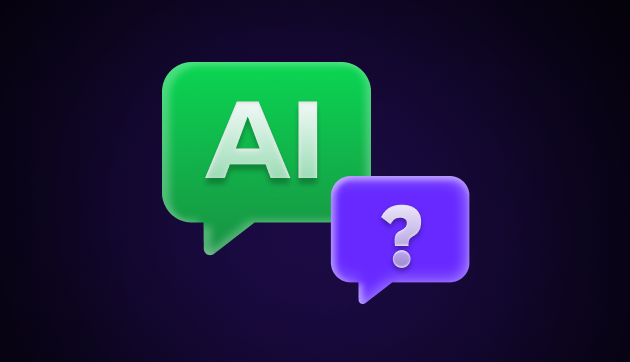
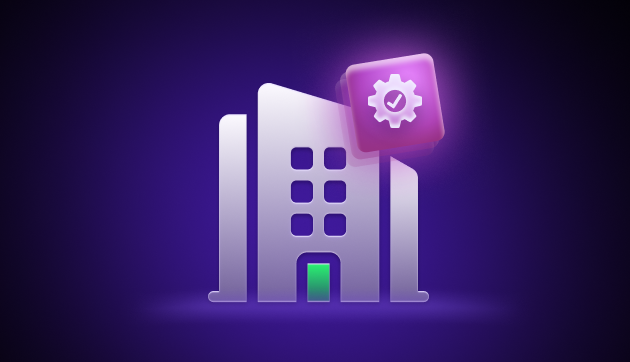
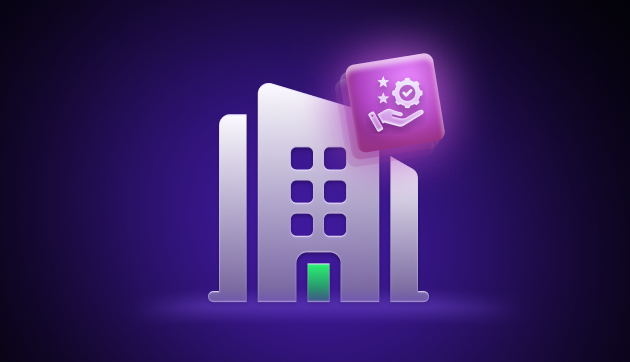
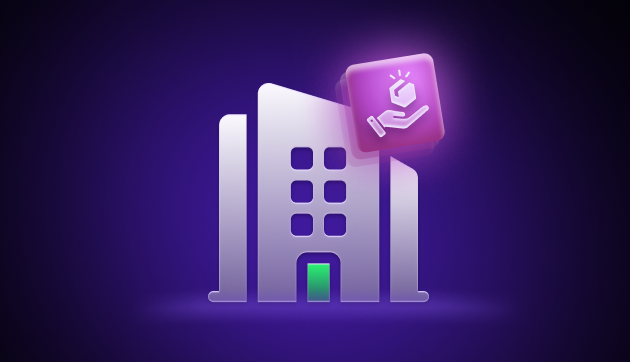

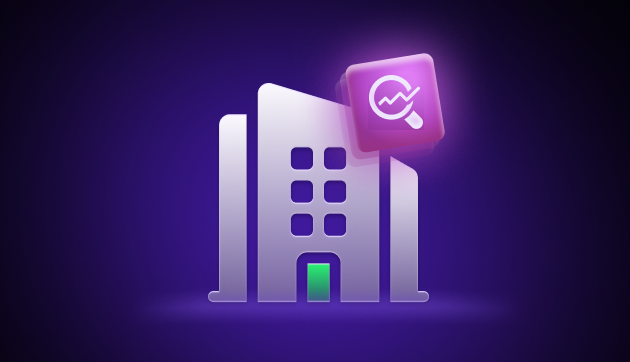

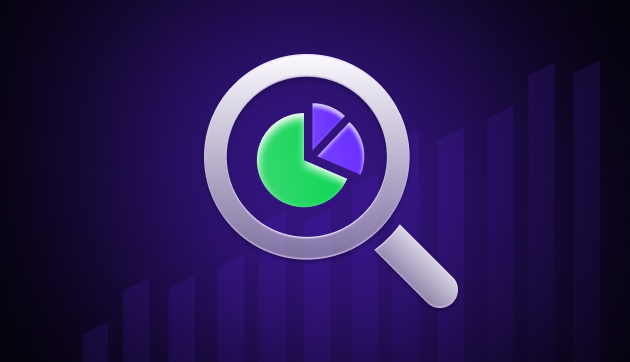

Did you enjoy this article?